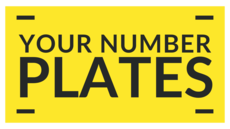1. Introduction – The Hidden Threat of Number Plate Cloning
Number plate cloning is a growing problem on UK roads. It can transform an innocent driver’s life into a legal nightmare, leading to fines, accusations, and unnecessary stress. The penalties for being involved—whether knowingly or not—are severe.
2. What Is a Cloned Number Plate?
A cloned plate is a copy of a legitimate vehicle registration number, affixed to another vehicle to disguise its true identity. The cloned vehicle can be identical in make and model or entirely different.
3. How Number Plate Cloning Happens
Criminals often photograph legitimate plates in car parks, on driveways, or on the road. These details are then used to create counterfeit plates through illegal suppliers or unregulated online sellers.
4. Why Criminals Clone Number Plates
The main goal is to commit offences—such as speeding, toll evasion, or fuel theft—without detection. Any penalties are sent to the innocent registered keeper of the real plate.
5. The Legal Framework in the UK
Cloning breaches several laws, including the Road Vehicles (Registration and Licensing) Regulations 2002 and the Fraud Act 2006. Both police and DVLA treat the offence with zero tolerance.
6. Immediate Consequences for Drivers Using Cloned Plates
If police suspect a vehicle has cloned plates, it can be stopped on the spot. Officers may seize the vehicle and detain the driver pending investigation.
7. Fines and Financial Penalties
Knowingly using a cloned plate can result in fines of up to £1,000. In cases involving additional offences, the penalties can be significantly higher.
8. Points on Your Driving Licence
Driving with a cloned plate can lead to penalty points if associated motoring offences are proven. These can contribute to disqualification under the totting-up system.
9. Vehicle Seizure and Impoundment
Police have the authority to seize and impound vehicles suspected of being used with cloned plates. Recovery fees, daily storage charges, and inspection costs can quickly add up.
10. Potential Criminal Charges and Court Action
Severe cases—especially where cloning is linked to organised crime—can result in charges of fraud, theft, or perverting the course of justice. Convictions may carry prison sentences.
11. The Impact on Insurance Policies
If your vehicle is found with cloned plates, insurers may suspend or void your policy until ownership and legality are confirmed. This can leave you uninsured during the investigation.
12. MOT and Tax Complications Caused by Cloning
Cloned plates can cause administrative chaos, with MOT and tax renewal reminders sent to the wrong vehicle or suspended due to police investigations.
13. The Role of ANPR in Detecting Cloned Plates
Automatic Number Plate Recognition (ANPR) systems cross-check registrations against databases. Inconsistencies, such as mismatched vehicle colour or location, can trigger alerts for police intervention.
14. How Innocent Drivers Can Be Caught in the Crossfire
Owners of the legitimate plate may receive speeding fines, parking tickets, or congestion charges for offences they did not commit. Clearing their name often involves time-consuming appeals.
15. Steps to Take If Your Plate Has Been Cloned
Report the matter to the police immediately and obtain a crime reference number. Notify the DVLA, your insurer, and keep all correspondence as evidence. Consider replacing your plates with anti-cloning designs.
16. Preventing Number Plate Cloning
Use tamper-proof screws, avoid unnecessarily displaying your plate online, and park in secure, well-lit areas. Consider anti-theft plates that shatter if forcibly removed.
17. Conclusion – Protecting Yourself and Staying Compliant
Number plate cloning is more than an inconvenience—it’s a serious offence with far-reaching consequences. Understanding the penalties and taking preventive steps is essential to safeguard your legal standing and your peace of mind.

